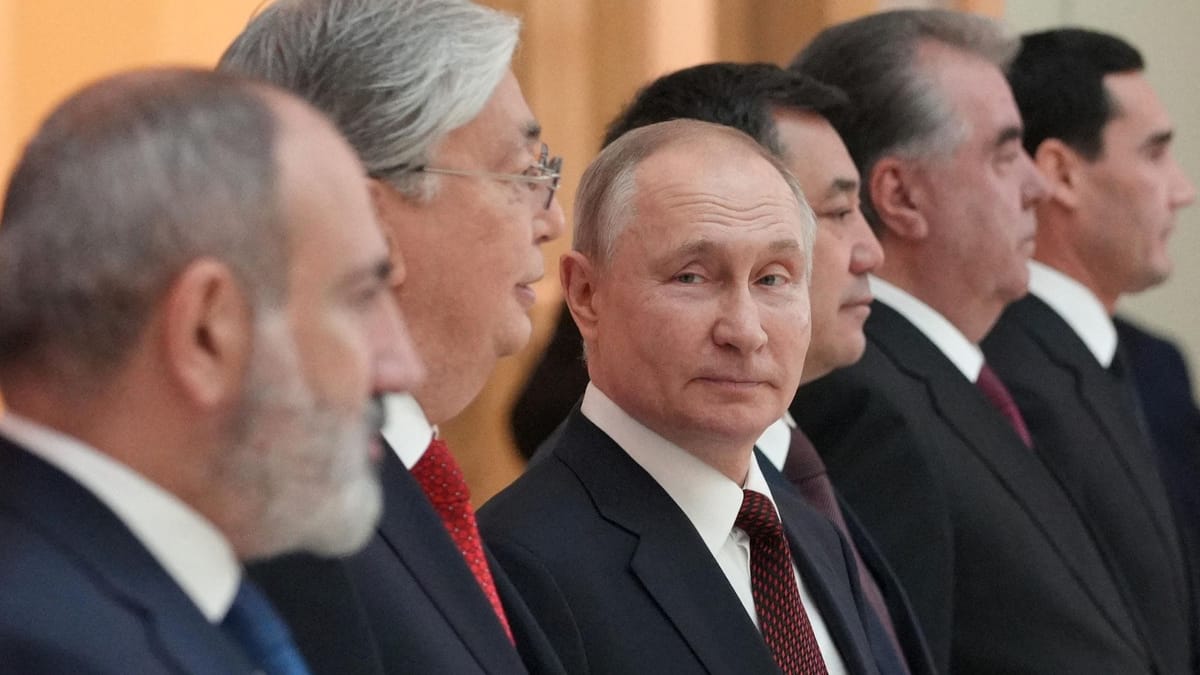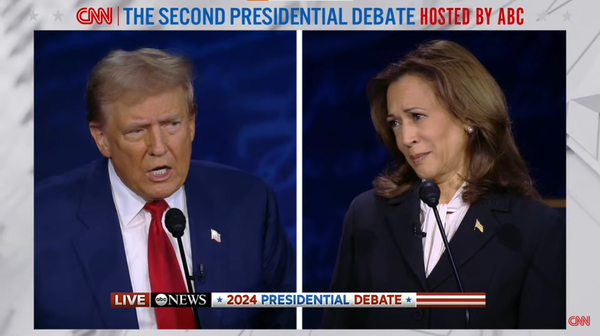Defunding the War on Ukraine: Is Sanctioning Russian Oligarchs Effective?
Is sanctioning Russian Oligarchs effective in defunding Russia's war on Ukraine?

Russia's invasion of Ukraine marked one of the low points in Europe's efforts to foster peace and ensure the continent does not return to the days of World War II. When Russian President, Vladimir Putin decided to invade Ukraine, the European Union and the United States had to figure out a way to ensure that Russia does not continue its onslaught, and settled for a strategy to defund the war. The two settled on sanctioning Russian oligarchs and businesses likely linked to the war effort. In this article, we ask: is sanctioning Russian Oligarchs effective in defunding Russia's war on Ukraine?
Featured: Experience the Ultimate Convenience in Global Shopping with MyUS.com!
Unlock a world of shopping with MyUS.com!
Get fast, reliable international shipping from your favorite US stores. Join now to enjoy affordable rates, package consolidation, and no sales tax. Experience hassle-free global shopping and delivery to over 220 countries. Sign up today and take advantage of our limited-time offer: 30 days free membership!
Don’t miss out on the ultimate convenience in global shopping – join MyUS.com now! Your dream purchases are just a click away. Start shopping smarter with MyUS.com!
Offer: Save up to 80% on shipping from the USA using the link below.
We may earn a commission when you make a purchase.
The EU and US Sanction Russian Oligarchs as a Move to Defund Russia's War on Ukraine
When Russia invaded Ukraine back in February 2022, it was an unprecedented occurrence prompting a need for the European Union, EU and United States to find a way to ensure that the war is shortlived, in aid of the people and nation of Ukraine. They settled on sanctioning Russian oligarchs and businesses they believed were likely linked to Putin and the war effort thus aiding in the propagation of the conflict. Sanction lists were consequently released, with a good number of Russian oligarchs targeted.

Read more on Russia's war against Ukraine here
It is troubling, however, that the war on Ukraine has continued for over two years now, with the sanctions doing little to stop it. This necessitates a deeper look into the effectiveness of sanctions and a search for better approaches or solutions.
What are Sanctions?
Sanctions are penalties or restrictive measures imposed by one or more countries against a targeted country, group, or individual to influence behavior or policies. They can include trade barriers, asset freezes, travel bans, and other economic or diplomatic actions to enforce international norms or political objectives.

Read more articles on politics here
Sanctions' effectiveness varies widely, often achieving limited or mixed results. While they can pressure targets to change their behavior, they sometimes harm civilians more than leaders, foster black markets, or provoke defiance. Their success largely depends on international cooperation and the specific context of their implementation.
What Happens When Sanctions are Imposed?
When a company or individual is sanctioned, they face various restrictions that impact their operations and daily activities. Financial sanctions can freeze assets and restrict access to banking systems, making transactions and investments difficult. Trade sanctions may prohibit exporting or importing goods and services, disrupting supply chains. Travel bans restrict movement, hindering personal and business mobility.
These measures isolate the sanctioned party from international markets and networks, damaging their reputation and economic stability. Compliance requirements also compel other entities to avoid dealings with the sanctioned party, further exacerbating their financial and operational difficulties.

Read more of our finance articles here
Symbolic Seizures and The Costs Associated
The EU and US promptly seized oligarchs' yachts and private jets as a symbolic move against sanctioned individuals. The point is to pressure them and in turn, Russia to end its war on Ukraine. The problem, however, is that it becomes an expensive venture as the government that freezes the assets is responsible for maintaining them. For things like yachts, that means maintaining the crew.

Financial Havens
What both the EU and US didn't count on in their onslaught was that those sanctioned would turn to financial havens such as Switzerland as a loophole for evading the sanctions. Essentially, sanctioned individuals, through money managers and asset management firms, would devise ways to evade the sanctions. An example is acquiring citizenship in a financial (and tax) haven such as Luxemburg, moving your assets there, and having them governed by their lax tax and financial laws.
Using Dual Citizenship and Asset Management Firms to Evade Sanctions
With dual citizenship, sanctioned individuals could channel their unfrozen assets through the financial haven, with the help of asset management firms, to other banks and accounts. It is important to note that most of these individuals have ever-flowing income streams and would, therefore, always be making more money despite account freezes and asset seizures.

The result is that sanctioned individuals will still retain access to their funds and continue funding the war and Putin if indeed that is what they had been out to do all along. Other tactics used would be to ferry cash across jurisdictions via private jets where sanctioned individuals would ferry wads of cash to another jurisdiction via an airport checks-free private jet.
Alternatively, Russian oligarchs would recruit family members or lovers and use their bank accounts to evade the sanctions and transfer monies where needed. There have also been instances where sanctioned individuals would make gold purchases via Dubai, then transfer that gold to another jurisdiction where they can safely store it in safety deposits, and away from the reach of sanctions.
Laxity on the Part of Financial Havens?: The Case of Switzerland
In Switzerland, an individual who has citizenship, even if dual citizenship alongside that of Russia, can have eased restrictions and less scrutiny on their assets even on being sanctioned. Switzerland has also been known to be a hub for 'hoarding' Russian money and sanctioned oligarchs will most likely turn to Swiss financial institutions such as banks to stash their assets.

Asset management firms there have also been known to aid Russian oligarchs in evading sanctions. They will even advertise their services in Russian to attract Russian money and help sanctioned individuals find loopholes. Considering that these loopholes could mean the continual funding of the Ukraine War, better approaches are needed.
Challenges Facing Nations When Enforcing Sanctions
Lack of Capacity and Goodwill
The Swiss government is inadequately equipped and lacks enough goodwill to track down sanctioned individuals' assets effectively and constitute required measures such as asset freezes. You will find that some European nations will enforce sanctions more effectively and even have the option of seizing said assets if the individuals have been found to circumvent the sanctions.
Time Investment
There is also the time investment necessary for a nation to enforce the sanctions. For instance, when an individual's assets and bank accounts are sanctioned, they have to talk to the government authority enforcing the sanction to clear all expenses they want to make from that account. As such, when let's say, a company of 500 employees needs to make a deal, they will have to contact the authority, share the details of the deal, deliberate, and be told whether it can be done.
Complexity
Sanctioned individuals or businesses may also employ complex financial instruments to evade sanctions. These can be shell companies, cryptocurrencies or even holding assets via companies that are registered under asset managers or other individuals. As such, when a nation like Switzerland is trying to enforce the sanctions, it may lack the expertise or skills to effectively untangle these complex webs and end up failing to restrict the financial wherewithal of the sanctioned party effectively.

Secrecy and Lack of Information
Another barrier to effectively implementing sanctions is the lack of information and secrecy that sanctioned individuals or their businesses would have. When a Russian oligarch is sanctioned, for example, they will likely enshroud their financial information, documents, and even their financial dealings. As such, when a nation is out to try and enforce sanctions on these individuals, they will be curtailed by a lack of information.
Lack of Cooperation
It is often the case that sanctioned parties will decline to work with governments or agencies enforcing sanctions. Why would a Russian oligarch bother to give information to a government that is trying to freeze their assets? Even more, with assets in the form of cryptocurrencies, what is to stop that oligarch from transacting business via a crypto exchange, without having to reveal anything to the authorities?

Read our Crypto articles here
Ensuring Reasonable Sanctioning: Arguments Critiquing the Effectiveness of Sanctions
Critics argue that sanctioning individuals and businesses should be done reasonably. They say it is not right to sanction an individual just because of their family ties, for instance. Others say it is also unreasonable to sanction businesses that have supplied Russia with goods such as oil transportation equipment, for example. They argue that such a company has nothing to do with the war and that it is Putin who should be sanctioned for commanding it.
When Nations are Sanctioned, It is the People that Suffer
There is also concern about the growing effects of sanctioning entire nations as a way to try and encourage regime change. Critics argue that in these nations, it is the common people who suffer from these sanctions the most, and not necessarily the leaders targeted. They say that such sanctions are felt by the people in the form of inflation and rising costs of services such as electricity, and so on.

Equipping Enforcing Nations with the Needed Capacity and Skills to Enforce Sanctions
Ultimately, it is upon the sanctioning parties i.e., the EU and US for this case, to not only do the footwork and exert their influence on nations to enforce the sanctions but also assist in tooling the enforcers. This could be in the form of aiding in training or personnel, to help the enforcing nations acquire the needed skills. Another would be to share intelligence on sanctioned individuals and even provide funding to help these nations build capacity.
A Rise in Black Markets
Sanctions can also lead to the emergence of black markets for the trade and supply of goods with the sanctioned party. In the case of Russia, this would mean acquiring military equipment on the black market, further concealing where they are getting their arms, who sells to them, and leaving the sanctioning parties and enforcing nations with even less information to go on.






